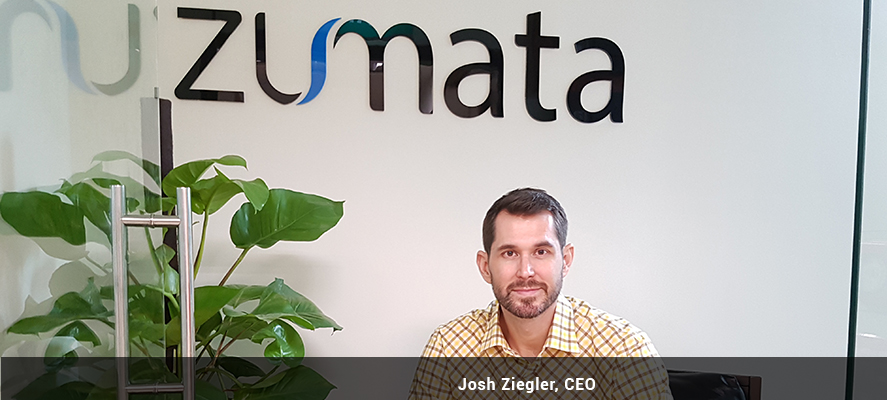Travelling today has become a common phenomenon. Businessmen, entrepreneurs, nature lovers, and explorers are always on the lookout for easy and seamless travel experiences considering their daunting and dynamic schedule. Planning such travels on a frequent basis can be hugely demanding and overwhelming. With the advent of mobile technology, though there have been commendable advances in terms of smart searches and quick information disposal, the demand to step up is always on the high.
The good news is we are now living in the era of cognitive technologies. Machine learning and AI are already seeing greater traction in the industry and according to a recent survey, close to 60% of organizations are already charting out roadmaps to implement them within their operations. Zumata, a provider of travel based technology solutions has spearheaded such revolution. Since its inception, Zumata is focused on solving real and meaningful problems faced within the travel sphere by using advanced cognitive technologies such as AI, Machine learning and natural language processing. “Our goal is to simplify complex issues and render easy to use and easy to integrate solutions for our clients,” says Josh Ziegler, Founder & CEO, Zumata. The trigger for Zumata emerged when it found that a large portion of the data present within the travel sphere was either stale or had become static, thereby contributing to being irrelevant to the present time. To tackle the issue, the firm developed technologies to gather hotel information and inventory from a large number of sources. The consolidated data was then cleaned and real-time data analysis was performed to cater the clients with the best service at that exact moment. By establishing a single point of contact, coupled with best-in-class API, Zumata was able to realize the sourcing of global hotel inventory. According to the firm, this has led to greater simplification within the travel retailer’s businesses, resulted in the elimination of significant costs while allowing them to focus their resources on their core competencies and other business operations.
Zumata works with more than 60 global hotel providers, and aggregates data and other information that includes descriptions of more than 500,000 properties, hotel images, and social media reviews and ratings – all of which are accumulated from external data sources. The reason for such traction is because, Zumata’s platform uses Natural Language Processing, tone analysis, image recognition etc, which helps the firm’s API understand the content and natural language queries that can deliver the perfect match. The brains behind such a capability certainly goes down to the team at Zumata, comprised primarily of senior level engineers with a wide range of skills and experiences. They are experts in applying their skillsets to resolve challenges from both a conceptual and technical level.
“The original goal was to use cognitive technologies to find the perfect hotel for a customer,” explains Josh. “Our capabilities to understand and manipulate unstructured data led us to explore various elements of artificial intelligence. We began with image recognition, and quickly moved to natural language understanding and processing.” Today, Zumata is in the league of building smart and feature-rich chatbots catering to many industries primarily focused on three major areas – sales, advisory and customer service. “Companies not looking to leverage these solutions for at least tier 1 customer service and sales lead generation are missing a gigantic opportunity to reduce operating costs and improve customer satisfaction,” he expresses. In fact Zumata’s clients are using AI chatbots as channels to enhance their customer communication, generate more leads, or as a concierge tool to guide their guests and provide consistent customer service. The firm’s chatbots are more tuned to understanding a customer’s question as against the traditional waiting in queues to converse with an agent. This has helped Zumata’s customers receive an immediate resolution at any time of the day.
The impact is here to see for Zumata’s customers – a return on investment that is more than ten times when considering a customer service force of 5 or more agents, better understanding of customer wants and needs and highly improved level of customer satisfaction. In numbers, if a customer of Zumata spends $50,000 to incorporate its solutions, the customer is likely to save $500,000 or more as a result of Zumata’s automation.
Zumata remains focused to productize basic level chatbots they have previously built on a customized basis. The cornerstone ideals of security, inter-operability and longterm maintenance will remain. The firm is looking to launch these products through partners that have existing corporate audiences in place. Two of the first products are ticketing chatbot suitable for travel agents and airlines and a hotel concierge automation product. They plan to offer both as SaaS products with low cost of adoption and yet with extensive features and functionalities.










